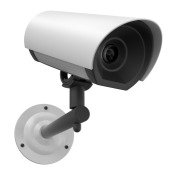"What Type of Fire Alarm Batteries do I need for my Smoke Alarm?"
Fire alarm batteries are needed to power your smoke detectors. Your smoke detectors can be battery operated or can be hardwired into your electrical system.
No matter what type of smoke detector you have, you need batteries to be used as a power source or as a back-up power source.
Battery Powered Smoke Detectors
Most smoke detectors run off 9-V batteries. You should check your smoke detectors on a monthly basis to make sure that they are working. Your batteries should be changed on a yearly basis.
Alkaline batteries

Alkaline batteries are a disposable battery. Some are rechargeable, but most are not. These batteries are the ones that should be replaced on a yearly basis for your smoke alarms.
Lithium batteries
Lithium batteries are a disposable battery that uses lithium as a component. Lithium cells can produce approximately twice the voltage of regular alkaline cells. These batteries are often used in portable consumer devices like PDA's.
There are also lithium batteries that are designed for home smoke alarms. These fire alarm batteries are designed and advertised to have long lives, some up to ten years.
These batteries are extremely helpful for those who have a hard time replacing batteries. Because smoke detectors should be located high on walls or ceilings, it is tough and dangerous for some people to go up on chairs or ladders to change the fire alarm batteries. Senior people come to mind.

You should still check your smoke alarms on a monthly basis no matter what the claims are of the manufacturer. You also need to check the fine print.
For instance, one manufacturer claims a ten year battery life for a smoke alarm. If you check closely though, the ten year claim is only for an ionized type of smoke alarm. If you use these batteries for a photoelectric smoke detector, the manufacturer does not claim a ten year life. The lithium battery will probably outlast an alkaline battery for a photoelectric alarm, but will not last ten years.
Hard-Wired Smoke Detectors
Hard-Wired Smoke Detectors should also have a back-up battery in case you lose power in your house. These mostly work with 9-V batteries. You can either use Alkaline or Lithium batteries.
Lithium batteries are also great for smoke detector systems that are hardwired into your electricity. You should also read the fine print on the lithium batteries. You should check the batteries on a periodic basis to make sure they work in case of emergencies.
Smoke Detectors that are part of a Home Security System
There are also smoke detectors that are part of an overall home security system. Many of these systems are hard-wired and have a 24 hour back-up battery source in case of power outages.
There are a few things to remember these batteries and systems. The first is to make sure that you have an idea of the space that the battery is allotted to take. There are different dimensions of alarm batteries and you need to make sure that it fits within the control box.
Second, installing these types of alarm batteries is a little more complex that a simple 9-V battery change, but is still relatively simple. Make sure to go through the owner's manual for more information on changing the battery.
Before disconnecting the battery within the system to put in a new one, make sure that you enter the installer code for the system. Without entering it, the alarm could be set off when you disconnect the battery.
Once the two cables are disconnected make sure to unplug the power supply to the alarm. This will stop the potential for harmful electrical currents running through the system. Place the new battery in the system in the same steps as when you removed the old battery. You might have to re-enter the engineer code to stop the alarm from going off.
If the alarm is still going off, you might need to check the panel door. On some systems, there might be some tamper switches that need to be pushed in to cease the alarm.



